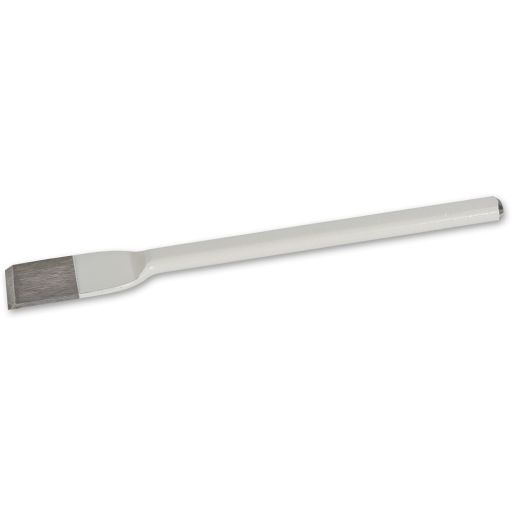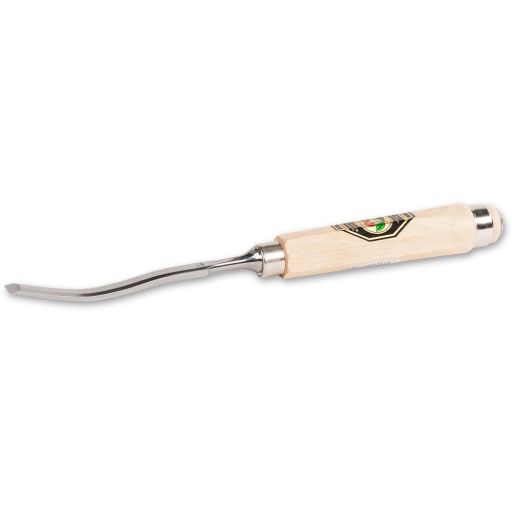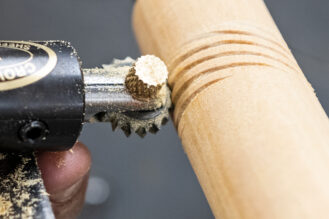Woodturning Chisels | A Guide To Chisel Types

In this blog, we’ll explore the different types of woodturning chisels, their uses, and the advantages and disadvantages of each type.
All About Woodturning Chisels
Woodturning chisels are essential tools for woodworkers, carpenters, and craftsmen. They come in various types, each designed for specific tasks.
All Steel Chisels
Rugged tools designed for heavy jobs such as roofing and large framing joints.
Advantages:
- Extremely durable
- Suitable for heavy-duty tasks
Disadvantages:
- Too heavy for delicate work
- Harder to control for precision tasks
Bevel Edge Chisels
Excellent for working into corners, such as cleaning dovetails.
Advantages:
- Great clearance in tight spaces
- Versatile for fine woodworking
Disadvantages:
- Not ideal for heavy-duty work
- Needs frequent sharpening
Butt Chisels
Short and easy to control, perfect for fine trimming and final fitting.
Advantages:
- Excellent control
- Ideal for detailed work
Disadvantages:
- Limited reach
- Not suitable for heavy-duty tasks
Carpenter's Gouges
Designed for making hollows, trenches, and concave shapes.
Advantages:
- Perfect for shaping and carving
- Versatile for curved cuts
Disadvantages:
- Requires skill
- Needs regular sharpening
Carving Tools
A wide selection of knives, gouges, and chisels for creative work.
Advantages:
- Great for artistic detail
- Wide variety of shapes and sizes
Disadvantages:
- Steeper learning curve
- Maintenance-intensive
Chisel Sets
Tool packages including the most commonly used sizes.
Advantages:
- Cost-effective
- Convenient variety
Disadvantages:
- May include rarely used sizes
- Quality can vary
More Woodturning Chisels...
Corner Chisels
Helps square corners easily and precisely, especially useful for mortices.
Advantages:
- Precise corner work
- Ideal for mortice clean-up
Disadvantages:
- Niche use
- Requires practice
Japanese Chisels
Well-balanced for both fine and heavy work, commonly used in Japan.
Advantages:
- High-quality craftsmanship
- Versatile performance
Disadvantages:
- Expensive
- Requires skill to master
Mortice Chisels
Built for chopping out mortices and cutting joints.
Advantages:
- Strong and durable
- Ideal for deep cuts
Disadvantages:
- Less precise
- Needs frequent sharpening
Paring Chisels
Long and thin, offering precise control for fine work.
Advantages:
- Excellent for delicate tasks
- High precision
Disadvantages:
- Not for heavy-duty use
- Fragile edge
Woodturning Tools
A wide selection for shaping and detailing on a lathe.
Advantages:
- Great for intricate designs
- Essential for woodturners
Disadvantages:
- Requires experience
- Regular maintenance needed
Cold Chisels
Used to cut and shape hard materials like metal.
Advantages:
- Cuts hard materials cleanly
- Very durable
Disadvantages:
- Not for wood
- Needs careful handling
Whether you're a beginner or a seasoned craftsman, having the right chisel for the job makes all the difference. Explore Axminster Tools’ range of woodturning chisels to find the perfect fit for your next project.
Discover more...
If you've enjoyed reading this guide, why not take a look at some of our other blogs?
Get in touch!
If you’ve used a certain type of woodturning chisels for one of your projects, or have bought one of our chisels, we'd love to hear from you. Comment below or send us a photograph and tell us all about what you've been up to, or what you've bought.
Alternatively, get in touch via our social media platforms. Find us on Facebook or Instagram.
































